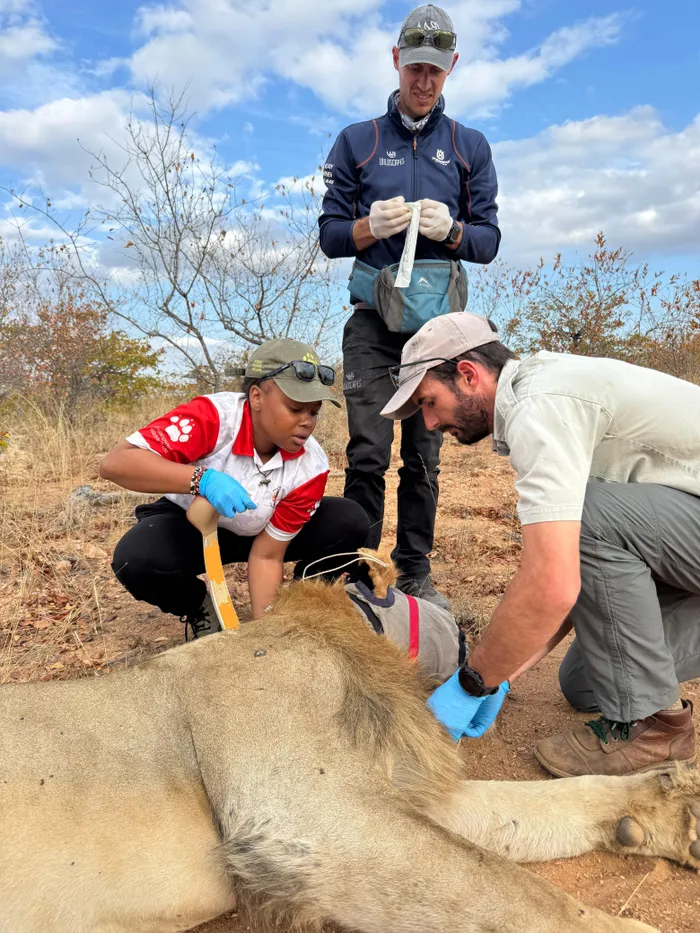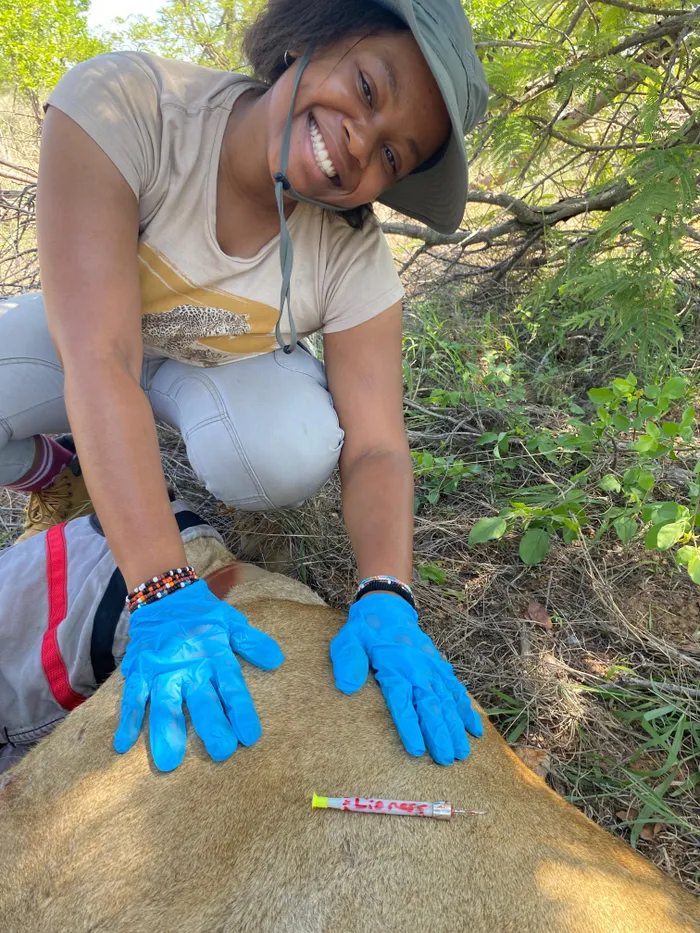Lesego the lionheart
lion heart

Lesego Mthethwa and her colleagues collar a lion so that its movements can be tracked in the Kruger National Park.
Image: Supplied.

Lesego Mthethwa after collaring a lion.
Image: Supplied.
WHILE most people admire lions from afar, Lesego Mthethwa tracks them through the bush, reads their movements and stares into the eyes of Africa’s apex predator every day.
Mthethwa is a field officer for the Carnivore Conservation Programme in the northern region of the Kruger National Park, where she focuses on lion monitoring.
She also supports the team with lion collaring, which allows them to track the movement of lions, especially when they enter high-risk areas.
Her “obsession” with the big cats started at the age of five. Every school holiday, her parents would take her to the Kruger National Park, and her mom recalls how the lions would excite little Lesego every time.
“There’s something about them that completely captivates me. Their strength, complexity, and presence resonate with me on a personal level.”
Mthethwa says that when she chose this career, it wasn't just about passion, it was an opportunity to break barriers and challenge the idea of what women, especially Black women, are “supposed” to do.
“I wanted to show other women and girls that we can pursue any career our hearts are set on — even ones that are male-dominated. Over time, I’ve seen a real shift. Family members who used to question the danger of my work, especially working with lions, are now genuinely curious and proud of what I do. Even among my extended family and friends, there’s been a change in how they see conservation and women’s role in it. It’s incredibly motivating to hear other women of colour say that seeing me in this space encourages them to believe it’s possible for them too.”
She has often been underestimated; some believe she isn’t strong enough to handle the physical demands, or they simply don’t take her as seriously in conversation.
“There’s this underlying idea that women aren’t strong enough or tough enough for fieldwork, especially when it comes to things like manual labour, tracking, or handling equipment. So, we constantly feel the pressure to go the extra mile — not just to prove that we deserve to be here, but that we’re just as physically capable.”
Poaching and poisoning, she says, are some of the biggest threats that lions face today.
Mthethwa says these are often linked to the illegal wildlife trade or the harvesting of body parts for use in traditional rituals. These practices, she says, are frequently driven by deep-rooted beliefs and social or economic pressures in surrounding communities.
“To address these we’ve taken a community-based approach. We go into neighbouring communities to speak directly to people involved or affected, to better understand the reasons behind lion poaching — whether it’s cultural beliefs, financial need, or a lack of awareness. By listening first, we’re able to build trust and tailor our outreach. It’s not just about telling people to stop; it’s about showing them why lions are vital to the health of the ecosystem, and how conservation can benefit them too. This approach helps shift perceptions and opens the door to sustainable coexistence.”
But what's it like being a woman in such a unique field?
Despite tracking one of Africa’s most dangerous predators, Mthethwa says one of her more persistent challenges comes from behind the steering wheel.
“Because of my height, I often struggle to see clearly over the dashboard in some of the larger 4x4s we use in the field,” she laughs. “So, I improvise — I use pillows or cushions to raise my seat and get a proper view of the road and my surroundings.”
Her advice to other girls and women?
“Be stubborn about your passion. Don’t let anyone tell you that what you want is impossible, because the truth is, everything is possible.” Keep showing up, not just for yourself, but for those coming after you.”